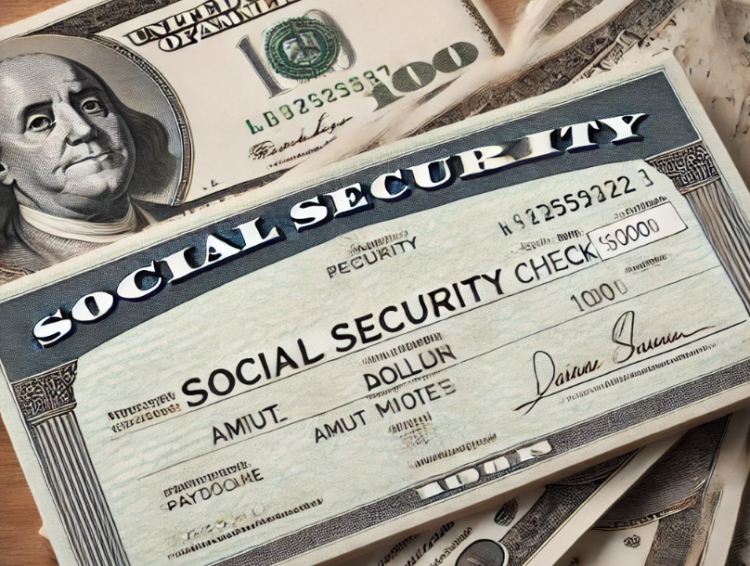The Social Security Administration announced Tuesday it will implement stricter identity verification rules beginning March 31, a move that will require millions of recipients and applicants to verify their identity in person at agency field offices rather than over the phone. The shift, aimed at curbing fraud, coincides with widespread office closures and staffing cuts, prompting concerns that access to critical benefits may become more difficult for vulnerable Americans.
Acting Social Security Commissioner Leland Dudek outlined the changes in a call with reporters. "The Social Security Administration is losing over $100 million a year in direct deposit fraud," Dudek said. "Social Security can better protect Americans while expediting service." He added, "This is a common sense measure."
Under the new policy, individuals unable to verify their identity using the SSA's "my Social Security" online service will be required to visit a local field office to complete the process. The rules apply to both new applicants and existing beneficiaries seeking to change direct deposit information. Previously, many of these services could be accessed remotely over the phone.
The SSA will also expedite processing of direct deposit changes, committing to complete such requests within one business day. The agency said that online direct deposit changes, previously subject to a 30-day hold, will be processed faster to reduce vulnerabilities to fraud.
However, retiree advocates and lawmakers expressed alarm over the potential consequences for older Americans, particularly those living in rural areas, individuals with disabilities, and those without reliable internet access.
Connecticut Representative John Larson, the top Democrat on the House Ways and Means Social Security Subcommittee, criticized the move, saying, "By requiring seniors and disabled Americans to enroll online or in person at the same field offices they are trying to close, rather than over the phone, Trump and Musk are trying to create chaos and inefficiencies at SSA so they can privatize the system."
The SSA changes come amid broader efforts by President Donald Trump and Elon Musk's Department of Government Efficiency to reduce the federal workforce and shrink government operations. The agency has announced plans to lay off approximately 7,000 employees-roughly 12% of its workforce-and shutter dozens of field offices across states including Texas, Florida, Louisiana, Arkansas, Kentucky, and North Carolina.
Internal SSA memos leaked to multiple outlets reveal additional forthcoming modifications. Among them: plans to end payments to certain representative payees and implement aggressive efforts to reclaim overpayments. An internal document, first obtained by Popular Information, acknowledges the changes will create "service disruption," "operational strain," and impose new barriers for vulnerable populations.
Critics warn that the new ID verification policy could disproportionately affect seniors, disabled individuals, and low-income Americans. Approximately 40% of Social Security benefit claims are currently processed over the phone-a channel heavily used by those without internet access or the ability to travel to SSA offices. Under the new rule, those who cannot navigate online verification will have no choice but to appear in person.
The leaked SSA memo concedes the shift will create "increased 'challenges' for vulnerable populations." It estimates the new requirement will force an additional 75,000 to 85,000 people to visit SSA field offices each week-a 14% surge in weekly office traffic. Given that SSA offices already serve around 119,000 visitors daily, the expected influx raises the likelihood of longer wait times and service delays.
Adding to concerns is the ongoing reduction in SSA infrastructure. The DOGE website lists leases for 47 Social Security offices that have been, or will be, terminated. Dudek downplayed the significance of these closures, arguing that many affected locations are small remote hearing sites with low public traffic. However, watchdogs and SSA insiders suggest that shrinking physical locations while increasing in-person requirements is a contradictory and disruptive strategy.
Elon Musk, who heads DOGE, has repeatedly claimed that Social Security is plagued by fraud and has characterized the program as a "Ponzi scheme." Despite numerous reports showing improper payments represent less than 1% of total benefits-and are typically the result of administrative errors rather than fraud-Musk's rhetoric appears to have influenced policy decisions at the agency.
The SSA defended its policy shift in a recent blog post, stating it is "implementing stronger identity verification procedures to further safeguard Social Security records and benefits against fraudulent activity." Dudek said outdated knowledge-based authentication systems rely on public information vulnerable to misuse.






